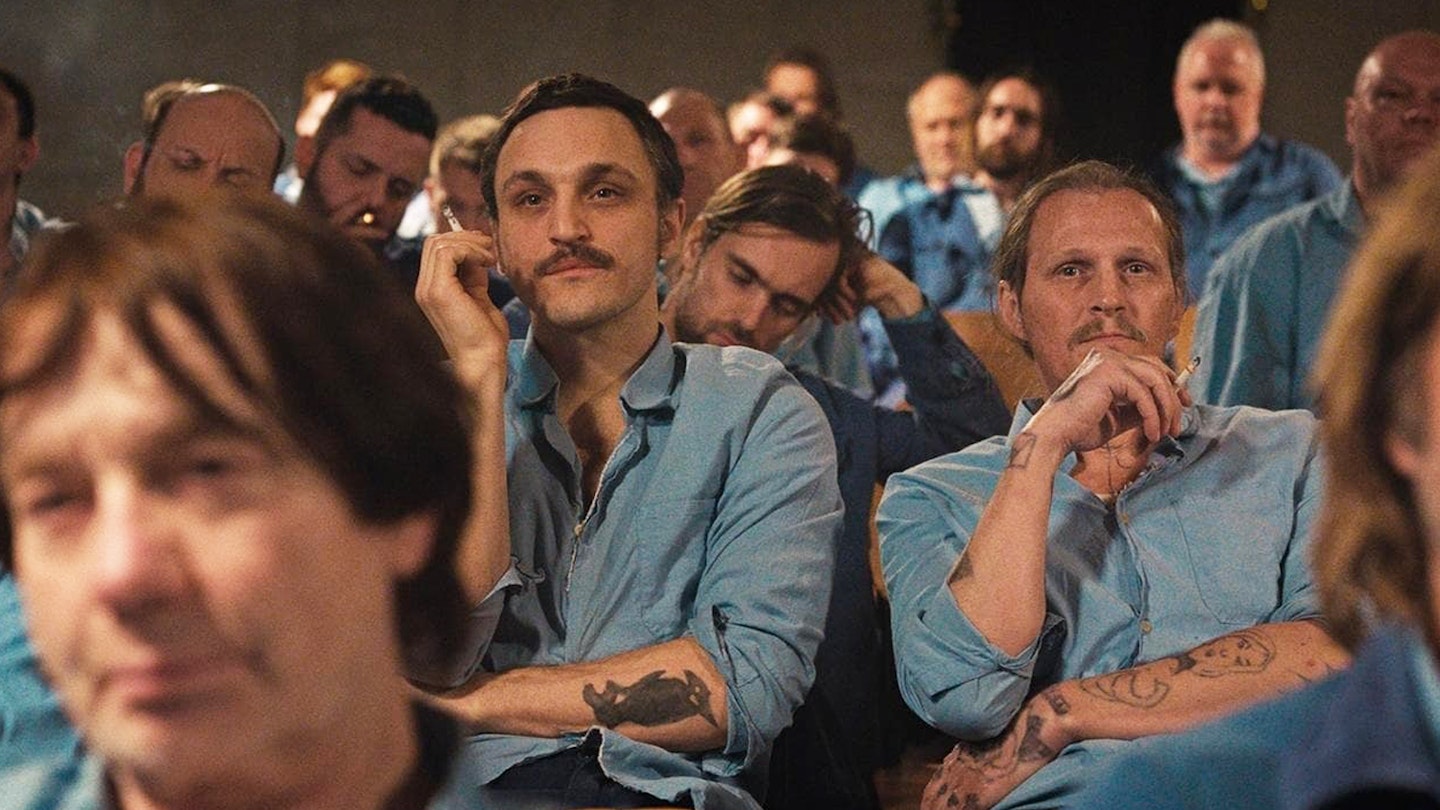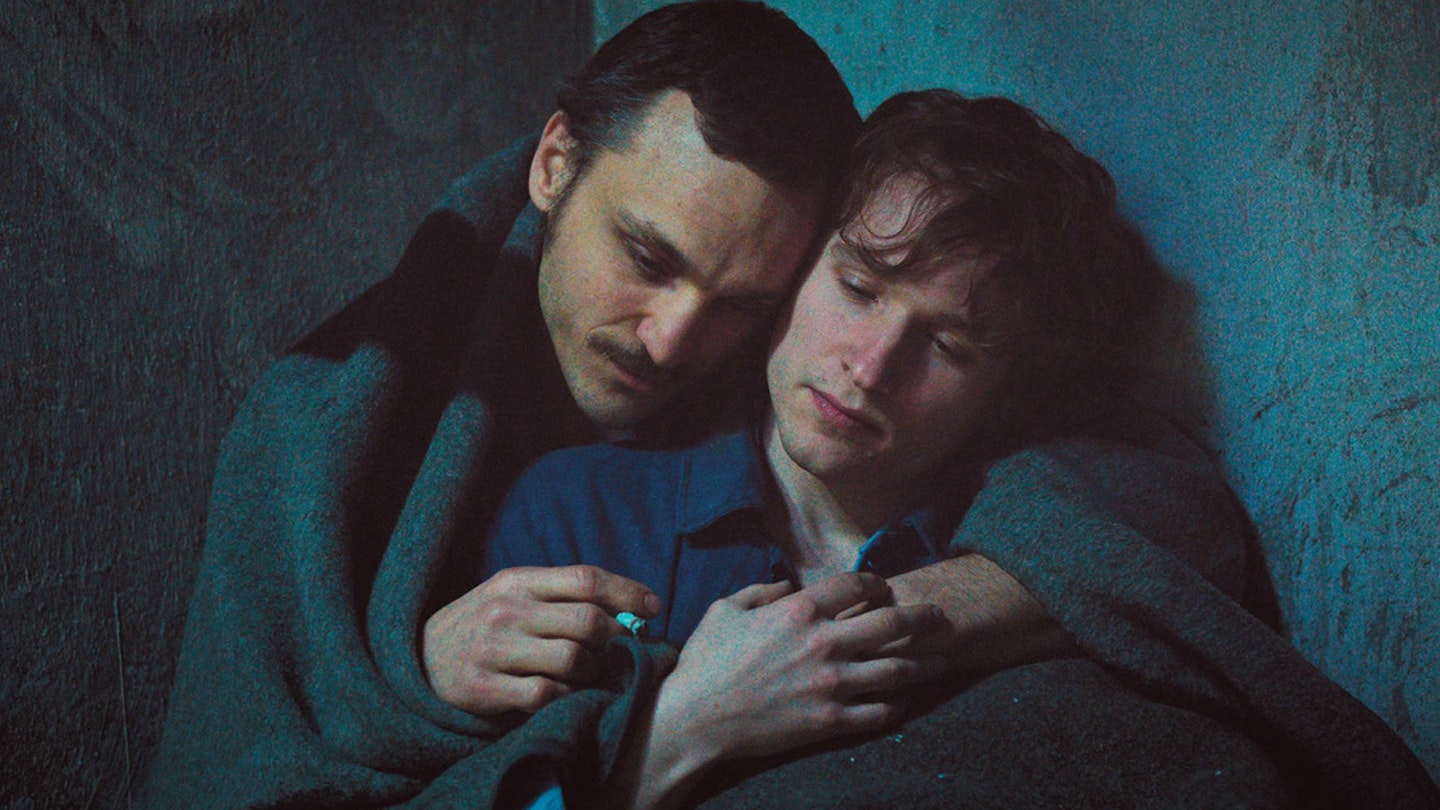The title Great Freedom (taken from the name of a Berlin gay club) is laced with grim irony. Post-World War II, while the Allies promised freedom from fascism in West Germany, homophobic laws — some of which would not be repealed until the ’90s — meant oppression continued for many gay men. This impressive prison drama is a fictionalised account of real stories that focuses on one of those men, who is transferred direct from a concentration camp to prison after the war, and sees many return trips simply for being gay. Sebastian Meise’s uncompromising film offers a bleak portrait of a shameful history, but finds hope in the humanity of its characters.

It opens in 1968, a time of immense political turmoil and progressive change, but still incredibly regressive for gay men. When we first meet Hans (played by Franz Rogowski, one of Europe’s most consistently impressive arthouse actors), it is on some grainy black-and-white footage of two gay men meeting in a toilet. The footage seems voyeuristic and strangely intimate — until we realise it is being used as evidence against Hans.
It is rare to see a love story of sorts between two men played so delicately or thoughtfully.
The exact details of Germany’s bigoted laws are never touched on in great detail, at least until an end-credits title cards fills us in, but their impact and cost are clear in the drama that plays out. Spanning decades, with a shifting-sands structure, we watch as Hans makes frequent return visits to multiple prisons, his appearance (from ’60s moustache to scruffy ’70s hair) changing with the rapid movement of culture in an outside world we almost never see.
When Hans first meets Viktor (Georg Friedrich, also brilliant), they are naturally suspicious, maintaining a tough mental armour between them. Viktor, who is nominally straight, falls back on the homophobic slurs he knows. But over the course of decades, they grow closer, developing a stirring, shared resilience, with Meise detailing small, tender acts between the pair. Their friendship is unusual, unconventional and (mostly) platonic, but it is rare to see a love story of sorts between two men played so delicately or thoughtfully. Trapped in an ugly system, they seem grateful simply to have found each other.
